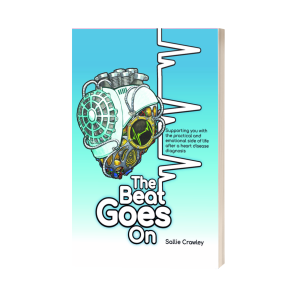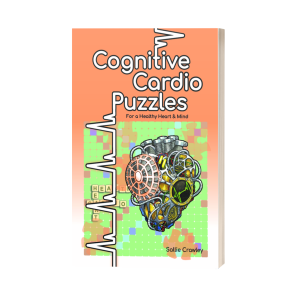Something that I get asked quite often is “What happens and how will I feel in the first few weeks and months after leaving the hospital following heart surgery or a heart attack?”
A question that most people will have running through their mind at some point after a heart attack or heart surgery.

The first few days…
Now, I am not a doctor. So, I must stipulate that if you have any concerns over anything you are feeling, you must consult with your doctor first. What I do know, having gone through a heart attack myself, is that everyone has similar questions. Hopefully, I can put your mind at ease with some of them here.
In the first few days, make sure you get plenty of rest. You have been sent home because the doctors have made sure your body is stable. The last thing you want to do is end up back there, so take it easy! Make sure you read the Cardiac Recovery Guide that you are given upon discharge from the hospital and follow the instructions fully and completely.
One of the things to remember is to not put too much pressure on yourself or others. Take it one step at a time, one day at a time. Your family and friends will want to make sure you are well looked after during your recovery period. It will have been a terrifying experience for them too.
They may not fully understand how you are feeling. Talking things through helps. Making sure you are only doing the things for yourself that you are allowed to and getting the rest you need is vital to your recovery. Give them time to learn how to help. Give them the paperwork from the hospital and your doctor to read over.
The hospital will make sure you have all the relevant guidance given by the doctors. Take time to read through it. Things like:
- what you can and can’’t do in the first weeks
- pain relief advice.
- lifestyle choices.
- how to care for a wound if you have had surgery.
- the medications you need to take and when to take it.
Your doctor will want you to keep an eye on your vitals. Heart Rate, Blood Pressure, and Blood Oxygen Levels. Checking these twice a day will help you learn what is normal for your body and how it’s healing. A starting point is to make sure your resting blood pressure is lower than 140/90. It is common to feel some discomfort following surgery or a heart attack. Try not to get too worried about every little twinge you feel. Tracking them over time will help you feel more secure and learn your body’s rhythm.
Medication and other symptoms
The hospital may have prescribed you new medications to take following your event and diagnosis. Common medicines prescribed may be Warfarin or Beta blockers. It takes time for your body to get used to new medication, so keep an eye out if you have any side effects and let your GP know. Also, set up any repeat prescriptions in the first few days after coming home.
You could experience loss of appetite following your heart attack or surgery. There are many contributing factors to this, for example:
- A low mood
- Pain and discomfort
- New medications.
It is something to expect but like many side effects of a heart attack or heart surgery, you need to keep an eye on it, and when you do feel up to it make sure you do eat. Something plain to start with. Your body needs the energy to heal. If you start to feel worse or your appetite doesn’t come back, speak to your doctor.
If you have been taking Hormone Replacement Therapy (HRT) up to your heart attack, your doctor may now advise you to come off HRT after a heart attack or heart surgery. There does seem to be more research needed on the effects of HRT after a heart attack as there does seem to be conflicting information. Some scientists advise it is ok to take and doesn’t have any negative effects, but in general, as not enough is known, most doctors will take you off it. Everybody is different in the way they respond to certain medications and hormones, so listen to your doctor and do what’s right for you. There are loads of natural versions of HRT now so it’s worth having the conversation with your doctor.
Feelings of anxiety or depression are common to experience when leaving the hospital, the cardiac blues. We have discussed in the previous blogs how your mental health can change. Make sure you talk about it to family, friends, your doctor, or even a group. Talking helps and you will soon see that there is a way through it.
Another very common condition following surgery is pump head. I can hear you laughing now, no, I haven’t gone mad. Doctors gave the nickname to this themselves! It is the feeling of confusion after surgery. Some doctors think it could be a side effect of the perfusion machine during cardiac surgery. The machine pumped the blood around your body during surgery and can have some side effects like dizziness, confusion, balance issues, and slower reactions. It is treatable with therapy, a good diet, and exercise, so speak to your doctor.

A week or so after a heart attack or heart surgery…
After a few days of rest, you are probably going a bit stir-crazy looking at the same 4 walls, but it is important you still take it easy. Short walks around the house and garden and maybe to the end of the road and back will help. Getting yourself a cup of tea and a sandwich is all you need to be aiming for in the first week. Make sure you listen to your body. When it’s time to rest.
It is very important to say that for the first month after a heart attack or heart surgery, you must not do anything strenuous. These include activities such as driving, hoovering, lifting anything, travelling for a long period of time, or any strenuous exercise. Walking is the only exercise you should be doing. Increasing your walking by 10 minutes a week can aid your recovery.
One thing you will need to keep an eye on is if you start to feel cold or start shivering a lot following your procedure. Your heart has been through a lot and could have been damaged by the event or surgery. The damage may mean the heart cannot pump blood around the body as well as it used to. It is important to notify your doctor if you experience long periods of feeling cold and shivering. It may be nothing as some of our medications can cause it but it can be a sign of heart disease so don’t dismiss it.
After the first month…
After around 4-6 weeks, you are probably thinking that you have spent far too much time with the family and the dog won’t leave your side and you want to get back in your car and feel independent again. I understand completely! Make sure you check with your doctor before doing this and with your country’s driving regulator (in the UK, there are restrictions).
Making short driving trips and not going straight to the highway! If you feel any pain or discomfort whilst driving, then make sure you pull over and stop. Taking someone with you on your first few trips is the best option. (Ah see you don’t get away from the family that easily!)
Sex. This could quite possibly be the last thing on your mind right now. But if it is not, then you may be wondering when you are able to do this again. Well, the general guidance is if you can climb 2 flights of stairs to the bedroom without discomfort, then you can have sex again with your partner.
Now is not the time, however, to be trying positions from the Kama Sutra! Let your partner do the heavy lifting and make sure you are comfortable and not putting too much pressure on yourself. Just being there and intimate with your partner could be enough to help lift your mood and your partner’s!
If you do experience impotence, please be rest assured this is perfectly normal. You have been through a lot and your body just may not be ready. It can also be a side effect of some medications so seek advice if you are worried. Please do not use any form of Viagra or other similar sexual stimulants. It can be very dangerous for someone who has just been through a cardiac event.
The near future
After a couple of months, getting away from it all and going on a holiday may seem like a dream but there are things to think about. If you are planning on going abroad, then make sure you are looking into holiday insurance. This may be a little more expensive following a heart attack, surgery or cardiac arrest, so have a look around for the best deal. It is also a good idea to pick somewhere with a shorter flying distance. Make sure you carry your medication and paperwork with you in your hand luggage and always, always speak to your doctor first!
Going back to work may be something you are hoping to do. The doctor could have given you an indication of the length of time needed before you can return to work, but it will depend on how your body is recovering. If your job requires you to lift heavy items, the recovery time would more than likely be longer than if you are office based. Stress is another contributing factor to heart health issues so make sure you are fully recovered before returning to work. It’s definitely worth a discussion with your manager regarding a phased return.
Since my heart attack, I have felt all the feelings that you can possibly think of; guilt, loneliness, scared, low, like I’m not in my own body, annoyed, sad, helpless. The list goes on. You can be up one minute and down the next. No wonder really, what a scary event to experience and go through.
You are still here feeling these feelings and that’s the starting point right there! A reason to keep going.
You are a survivor.
-
 The Beat Goes On Kindle Book: Supporting you with the practical and emotional side of life after a heart disease diagnosis£4.99
The Beat Goes On Kindle Book: Supporting you with the practical and emotional side of life after a heart disease diagnosis£4.99 -
 The Beat Goes On Book: Supporting you with the practical and emotional side of life after a heart disease diagnosis£11.99
The Beat Goes On Book: Supporting you with the practical and emotional side of life after a heart disease diagnosis£11.99 -
 Cognitive Cardio Puzzle Book for a Healthy Heart & Mind£8.99
Cognitive Cardio Puzzle Book for a Healthy Heart & Mind£8.99
